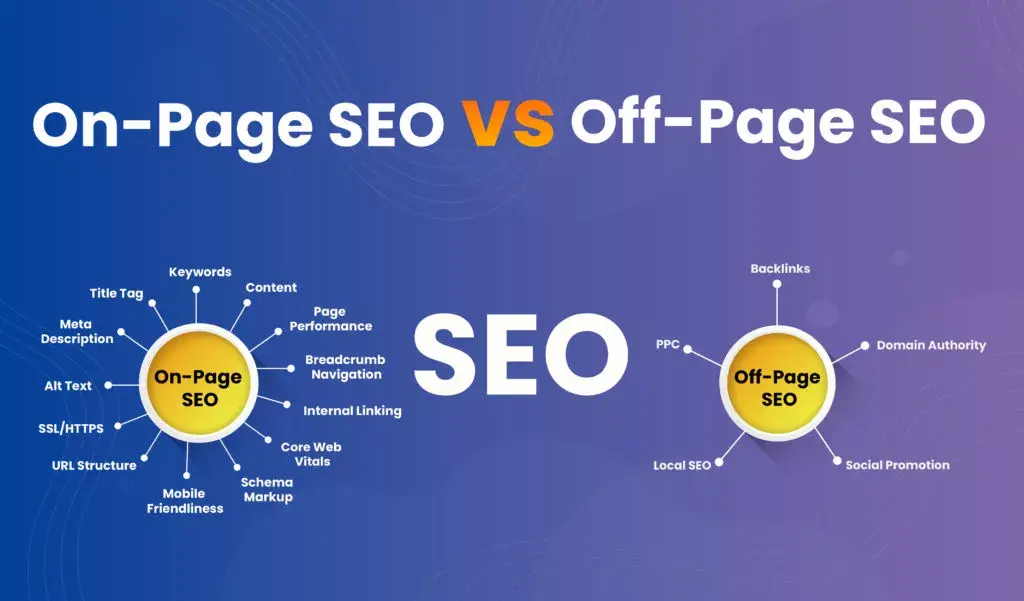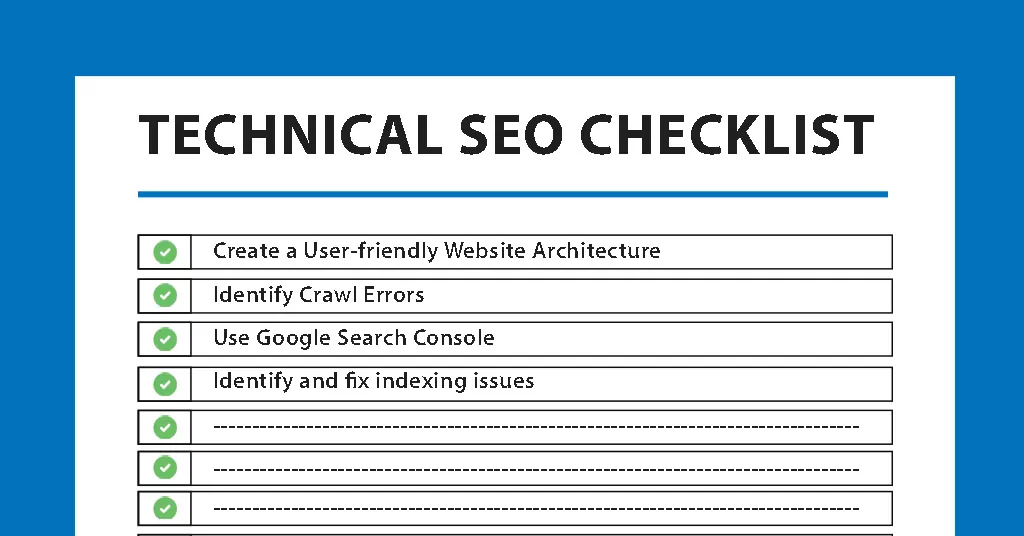WordPress or Shopify: A Comprehensive Guide to Choosing the Right Platform
Table of contents
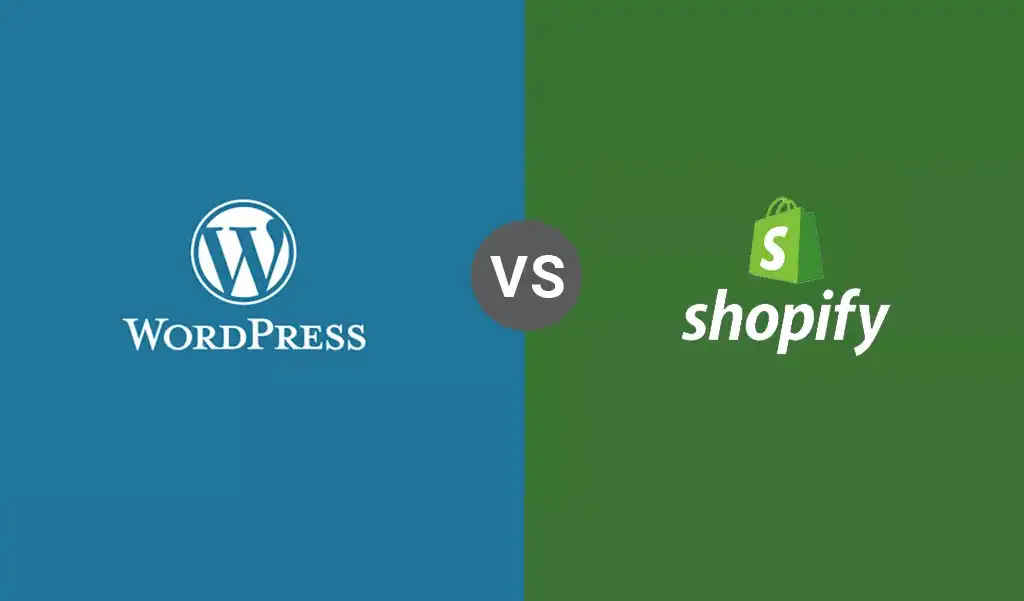
Welcome to our comprehensive guide on choosing the right platform for your online business: WordPress or Shopify. Whether you’re a seasoned entrepreneur or just starting out, making the right choice can be a game-changer. In this blog post, we’ll walk you through the key differences, pros, and cons, and ultimately help you decide between WordPress and Shopify. So, let’s dive in and explore the world of WordPress vs Shopify!
WordPress vs Shopify
When it comes to building and managing your online business, choosing the right platform is crucial. Two popular options that often come up in discussions are WordPress and Shopify. Both platforms have their strengths and weaknesses, so it’s important to consider your specific needs before deciding. WordPress offers a wide range of benefits that make it a powerful choice for many businesses. It is highly customizable, allowing you to create a unique and personalized website. With thousands of themes and plugins available, you can easily add functionality and enhance your site’s appearance. WordPress also offers great SEO capabilities, ensuring that your content ranks well in search engine results. On the other hand, Shopify is known for its simplicity and user-friendly interface. It’s a fully hosted platform, which means you don’t have to worry about managing technical aspects like hosting and security. Shopify also offers a dedicated support team, available 24/7 to assist with any issues that may arise. There are some key differences between WordPress and Shopify to consider. WordPress is a content management system, whereas Shopify is an e-commerce platform. This means that WordPress is more versatile and can be used for various types of websites, while Shopify is specifically designed for online stores. The type of business you have will also influence which platform is best suited for you. If you have a small online store with a limited product range, Shopify may be more suitable due to its ease of use and dedicated e-commerce features. However, if you have a larger business with complex needs, such as content-heavy sites or multiple stores, WordPress’s versatility may be a better fit. Pricing is another factor to consider. WordPress itself is free, but you’ll need to purchase hosting and possibly premium themes or plugins. Shopify is a subscription-based service with different pricing plans depending on your business needs. Choosing the right platform between WordPress and Shopify depends on your specific requirements. Consider the benefits, key differences, ease of use, pricing, and the nature of your business to make an informed decision. Both platforms offer unique advantages, so take your time to evaluate them thoroughly before making a choice.
Benefits of Using WordPress
WordPress is one of the most popular content management systems (CMS) available today and for good reason. It offers numerous benefits that make it an ideal choice for businesses and individuals looking to create and manage their websites. Here are some of the key benefits of using WordPress:
- User-Friendly Interface: WordPress is known for its intuitive and user-friendly interface, making it easy for beginners and non-technical users to create and manage their websites. It offers a simple and straightforward dashboard that allows users to update content, add new pages, and make design changes without any coding knowledge.
- SEO-Friendly: WordPress is inherently optimized for search engines, making it easier for websites to rank higher in search engine results. It offers features such as customizable permalinks, options to add meta tags, and the ability to optimize images, which are essential for improving search engine visibility. Additionally, there are numerous SEO plugins available that can further enhance the website’s search engine optimization efforts.
- Flexible and Customizable: With thousands of themes and plugins available, WordPress offers a high level of customization and flexibility. Users can choose from a wide range of themes to create visually appealing websites and install plugins to add new functionalities to their websites. This flexibility allows businesses to create unique and tailored websites that align with their brand and meet their specific requirements.
- Mobile Responsive: In today’s mobile-centric world, having a mobile-responsive website is crucial. WordPress offers a vast selection of responsive themes that automatically adjust the layout and design of the website to provide an optimal user experience across different devices. This ensures that the website looks and functions well on smartphones, tablets, and desktops alike, enhancing user engagement and improving search engine rankings.
- Strong Community Support: WordPress has a large and supportive community of developers, designers, and users who actively contribute to the improvement and development of the platform. This means that there are always resources, tutorials, forums, and plugins available to help users troubleshoot and optimize their WordPress websites. Additionally, regular updates and security patches are released to ensure that websites built on WordPress remain secure and up to date.
- Scalability and Extensibility: WordPress is suitable for websites of all sizes, from small blogs to large e-commerce websites. It can handle high traffic volumes and allows businesses to scale their websites as they grow. With the availability of plugins and third-party integrations, users can easily add new features and functionalities to their websites without the need for extensive coding or development.
In summary, WordPress provides a user-friendly, flexible, and customizable platform for building and managing websites. Its SEO-friendliness, mobile responsiveness, strong community support, and scalability make it an excellent choice for businesses looking to optimize their online presence.
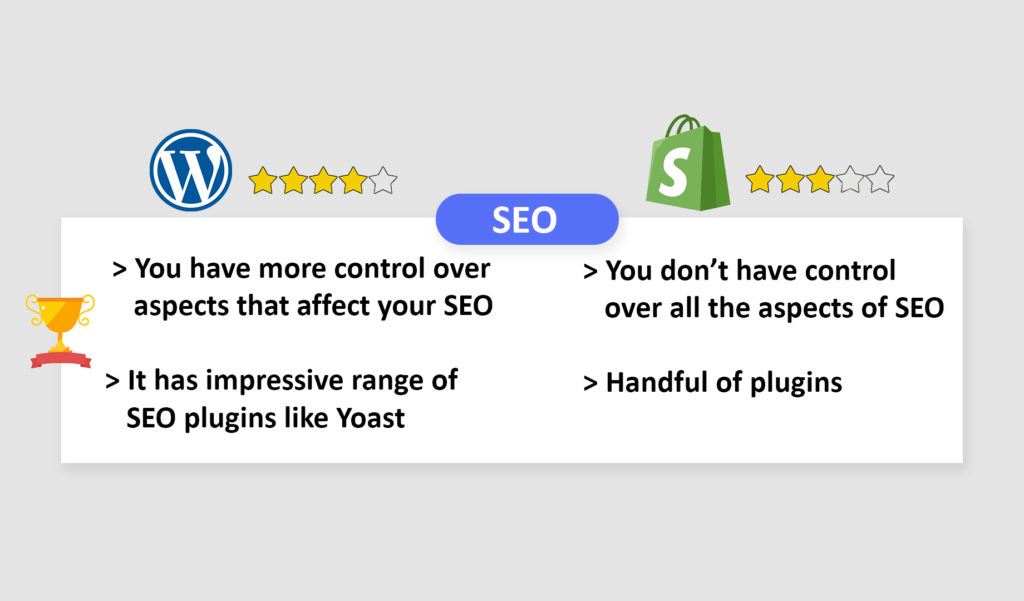
Benefits of Using Shopify
Shopify is a popular e-commerce platform that offers a range of benefits for businesses looking to sell products or services online. Here are some of the key benefits of using Shopify:
- Easy to Use: Shopify is known for its user-friendly interface, making it accessible for businesses of all sizes and technical abilities. It offers a simple and intuitive dashboard where users can easily manage their online store, update product listings, track inventory, process orders, and more. With its drag-and-drop interface, setting up a professional-looking online store becomes hassle-free.
- Ready-made Templates: Shopify offers a wide variety of professionally designed and customizable themes to choose from. These templates are optimized for both desktop and mobile devices, ensuring a seamless shopping experience for customers. Additionally, themes can be customized using the built-in editor or through coding for more advanced design changes.
- Secure and Reliable: Security is a top priority for any online business, and Shopify provides a secure platform for handling payments and sensitive customer data. It is a fully hosted solution, meaning that security and server maintenance are taken care of by Shopify. This allows businesses to focus on running their online store without worrying about security vulnerabilities or downtime.
- Extensive App Store: Shopify has an extensive app store,, with thousands of applications and plugins that can be integrated into your store. These apps can extend the functionality of your store by adding features such as marketing tools, analytics, inventory management, customer support, and more. Whether you need to integrate with third-party services or automate certain processes, there is likely an app available to suit your specific needs.
- Payment Gateway Options: Shopify provides seamless integration with multiple payment gateways, allowing businesses to offer a variety of payment options to their customers. Popular payment gateways like PayPal, Stripe, and Shopify Payments are readily available, making it easy for customers to make secure online transactions. This flexibility helps businesses cater to a wider range of customers and maximize sales conversions.
- Robust Inventory Management: Shopify offers powerful inventory management features, allowing businesses to efficiently track and manage their products. Inventory levels can be automatically updated as orders are processed, and businesses can set up notifications for low stock levels to ensure that they never run out of popular items. Shopify also enables businesses to manage multiple sales channels, such as online stores, physical retail locations, and third-party marketplaces, all in one centralized platform.
- SEO-Friendly: Shopify provides built-in SEO tools and features to help businesses optimize their online store for search engines. These include customizable meta tags, title tags, and URL structures, making it easier to rank higher in search engine results and increase organic traffic. Additionally, Shopify’s responsive design ensures that your online store looks great on any device, which is essential for both user experience and search engine rankings.
In summary, Shopify offers a user-friendly platform with ready-made templates, secure infrastructure, extensive app integration options, and robust inventory management. Its SEO-friendly features and ability to handle multiple payment gateways make it an excellent choice for businesses looking to create a professional and scalable online store.
Key Differences between WordPress and Shopify
WordPress and Shopify are two popular platforms used for creating and managing websites, but they have distinct differences in terms of their purpose, features, and target audience. Here are some key differences between WordPress and Shopify:
- Purpose:
- WordPress: WordPress is a versatile content management system (CMS) that can be used to build various types of websites, including blogs, portfolios, business websites, and even e-commerce stores. It provides a flexible and customizable platform for creating websites of all kinds.
- Shopify: Shopify, on the other hand, is primarily designed for e-commerce businesses. It is a dedicated e-commerce platform that offers all the necessary features and tools specifically tailored for creating and managing online stores.
- Ease of Use:
- WordPress: WordPress can be user-friendly for beginners and non-technical users, especially thanks to page builders and beginner-friendly themes. However, customization options and managing plugins may require some technical knowledge.
- Shopify: Shopify is known for its ease of use and user-friendly interface. It provides an intuitive dashboard and drag-and-drop functionality, making it more accessible for users without coding experience. It offers a more straightforward and streamlined process for setting up and managing online stores.
- Customization and Flexibility:
- WordPress: WordPress offers extensive customization options through its vast library of themes and plugins. It allows you to create highly customized websites with complete control over design and functionality. It is suitable for businesses looking for unique and tailored designs.
- Shopify: While Shopify offers a range of customizable themes and allows users to modify their appearance, customization options are more limited compared to WordPress. Shopify focuses more on ease of use and quick setup rather than extensive customization possibilities.
- E-Commerce Features:
- WordPress: Although WordPress can be used for e-commerce, it requires additional plugins (such as WooCommerce) to add e-commerce functionality. While these plugins offer powerful e-commerce features, managing an online store with WordPress may involve more technical knowledge and setup time.
- Shopify: Shopify is specifically designed to handle e-commerce and provides all the necessary features out-of-the-box. It offers built-in inventory management, payment gateway integration, secure checkout, and other robust e-commerce functionalities.
- Hosting and Maintenance:
- WordPress: WordPress is a self-hosted platform, which means you need to manage your own hosting and perform regular updates and maintenance tasks. This requires some technical knowledge and responsibility for ensuring website security and performance.
- Shopify: Shopify is a fully hosted platform, which means hosting, security, and maintenance are handled by Shopify. This alleviates the need for technical tasks like server management and regular updates, allowing users to focus more on their business.
It’s important to assess your specific business needs and goals when choosing between WordPress and Shopify. If you require a highly customized website or have specific non-e-commerce requirements, WordPress might be the better choice. On the other hand, if you prioritize ease of use, quick setup, and an all-in-one e-commerce solution, Shopify may be more suitable for your needs.
What Kinds of Businesses are Best Suited to Each Platform?
WordPress and Shopify are both powerful platforms, but they cater to different types of businesses and have specific strengths. Here’s an overview of the kinds of businesses that are best suited to each platform:
WordPress:
- Content-Focused Websites: WordPress started primarily as a blogging platform, and it’s still an excellent choice for content-focused websites such as blogs, news websites, online magazines, and portfolio websites. Its flexibility and wide range of themes and plugins make it easy to create and manage content-rich websites.
- Small to Medium-Sized Businesses: WordPress is suitable for small to medium-sized businesses that need a versatile website. It allows businesses to have full control over their website design, functionality, and content updates without relying heavily on technical expertise or ongoing support.
- Service-Based Businesses: WordPress is a good fit for service-based businesses such as freelancers, agencies, consultants, and professionals. It allows them to showcase their services, share testimonials, and create a strong online presence to attract potential clients.
- Niche Websites: Businesses targeting specific niches with unique design and functionality requirements, such as photography websites, restaurant websites, and membership sites, can benefit from WordPress. The wide range of themes and plugins available allows for customization and tailored solutions.
- Multilingual Websites: WordPress offers extensive support for multilingual websites through plugins like WPML and Polylang. It enables businesses targeting international audiences or serving multilingual markets to easily manage and display content in different languages.
Shopify:
- E-commerce Businesses: Shopify is specifically built for e-commerce businesses and is a solid choice for online retailers. It offers a comprehensive set of features and tools for managing online stores, including product listings, inventory management, secure payment gateways, order processing, and shipping integration. It is ideal for businesses focused on selling physical or digital products.
- Startups and Small Businesses: Shopify’s user-friendly interface, pre-built templates, and seamless payment integration make it an excellent choice for startups and small businesses looking to launch their online store quickly. It offers a simplified setup process and requires less technical knowledge compared to other platforms.
- Drop-shipping Businesses: Shopify integrates well with dropshipping apps and platforms, making it a popular choice for dropshipping businesses. It allows seamless integration with suppliers, order fulfillment automation, and inventory synchronization, simplifying the dropshipping process.
- Businesses without Technical Expertise: Shopify’s out-of-the-box solution is designed to be user-friendly and does not require extensive technical knowledge or coding skills. It offers a streamlined and easy-to-use interface, making it accessible to businesses without a technical background.
- Businesses with Scalability Needs: Shopify handles hosting and offers scalable infrastructure, allowing businesses to handle high volumes of traffic and sales. It can accommodate businesses of all sizes, from startups with limited products to large-scale enterprises.
These are general guidelines, and each business’s specific needs from Web Design Jacksonville that should be considered when choosing between WordPress and Shopify. It’s always advisable to evaluate your business requirements, budget, technical skills, and growth plans before deciding
Ease of Use for Each Platform
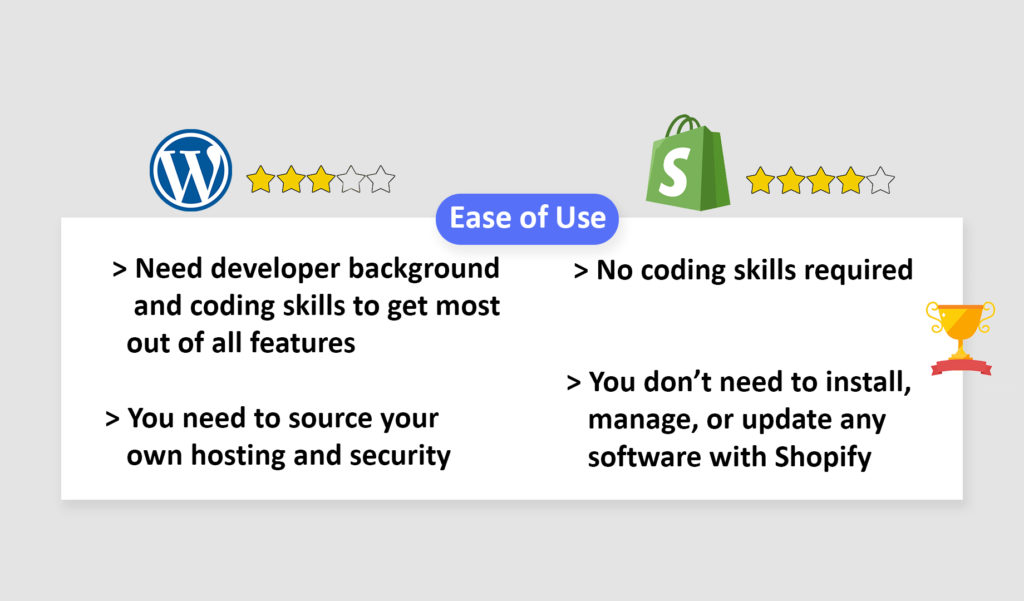
Both WordPress and Shopify offer user-friendly interfaces, but there are some differences in terms of ease of use. Here’s a breakdown of the ease of use for WordPress and Shopify:
WordPress:
- Ease of Setup: WordPress requires a domain, hosting, and manual installation. This process can be more complex for beginners compared to Shopify, which offers a guided setup process. However, many hosting providers offer one-click WordPress installations, simplifying the setup process.
- User Interface: WordPress has a user-friendly interface, especially for content creation and management. The dashboard is intuitive, and the visual editor allows for easy content updates. However, more complex tasks, such as customizing themes or managing plugins, may require some technical knowledge or a learning curve.
- Customization: WordPress is known for its flexibility and customization options. However, the wide range of choices can be overwhelming for beginners. Customizing themes and adding functionality through WordPress plugins may require a profound understanding of themes and code.
- Learning Curve: While WordPress can be user-friendly for content creation and basic administration, there can be a learning curve for more advanced tasks. Users with less technical knowledge may need some time to familiarize themselves with the platform and its terminology.
Shopify:
- Ease of Setup: Shopify offers a guided setup process that simplifies the initial website creation. Users can follow the step-by-step instructions to set up their online store without any technical knowledge or prior experience. This makes it an excellent choice for beginners or users with limited technical skills.
- User Interface: Shopify has a user-friendly interface with a clean and intuitive dashboard. The navigation is straightforward, and the drag-and-drop functionality allows users to easily customize their online store. The interface is specifically designed for e-commerce, making it easy to manage products, orders, and other e-commerce tasks.
- Customization: Shopify offers a range of professionally designed themes that can be easily customized using the built-in editor. Users can modify colors, fonts, layouts, and other elements without any coding knowledge. However, compared to WordPress, customization options may be more limited, especially for complex design changes.
- Learning Curve: Shopify’s user-friendly interface and guided setup process make it relatively easy for beginners to get started. Users with no prior experience in website development or e-commerce can quickly learn the platform and start managing their online store.
Overall, both WordPress and Shopify offer user-friendly interfaces, but the ease of use may vary depending on the specific tasks and customization requirements. WordPress provides more flexibility and customization options, making it suitable for users who are willing to invest time in learning the platform. Shopify, on the other hand, excels in providing an easy and streamlined e-commerce experience, making it a preferred choice for beginners or businesses focusing primarily on selling products online.
Pricing Comparison between WordPress and Shopify
WordPress and Shopify have different pricing structures due to their varying hosting and maintenance models. Here is a comparison of the pricing options for WordPress and Shopify:
WordPress:
- WordPress Software: The WordPress software itself is free and open-source, which means you can download and install it on your own server or a hosting provider of your choice. However, you may need to pay for web hosting and a domain name separately. The cost of hosting can range from a few dollars per month to higher amounts depending on the hosting provider and the hosting plan you choose.
- Premium Themes and Plugins: WordPress offers a vast selection of free themes and plugins, but there are also premium options available at an additional cost. Premium themes usually range from $20 to $100 or more, depending on the quality, features, and support provided. Premium plugins can also vary in price, depending on their functionality and developer reputation.
Shopify:
- Monthly Plans: Shopify offers a range of monthly pricing plans starting from $29/month for the Basic Shopify plan, $79/month for the Shopify plan, and $299/month for the Advanced Shopify plan. The plan you choose depends on your business needs and the level of features required, such as advanced reporting or third-party calculated shipping rates.
- Transaction Fees: In addition to the monthly plan fees, Shopify also charges transaction fees for each sale made on the platform. The fees range from 2.0% to 0.5%, depending on the plan you choose. However, if you use Shopify Payments (Shopify’s built-in payment gateway), transaction fees are waived.
- App and Theme Costs: While Shopify offers a range of free themes and apps, there are also premium options available in the Shopify theme and app stores. Premium themes typically cost between $140 and $180, while app costs can vary depending on their functionality. It’s important to consider the cost of any premium themes or apps you may need to enhance your store’s functionality.
It’s worth noting that both WordPress and Shopify have additional costs that may arise from hiring developers or designers for customizations, maintenance, and ongoing support. These costs can vary widely based on your specific requirements and the rates charged by service providers.
In summary, the cost of WordPress depends on factors like web hosting, domain registration, premium themes, and plugins. Shopify offers a range of pricing plans that include hosting, security, and support, with additional costs for premium themes, apps, and transaction fees. It’s important to consider your budget, business needs, and desired level of control
Cons of WordPress vs Shopify
While WordPress and Shopify are both popular platforms, they also have their respective disadvantages. Here are some cons of using WordPress and Shopify:
WordPress:
- Technical Expertise Required: Setting up and managing a WordPress website can require some technical knowledge, especially if you opt for self-hosting. Managing updates, themes, plugins, and troubleshooting technical issues may be challenging for users without technical expertise.
- Security and Updates: WordPress is a popular target for hackers due to its widespread use, and maintaining website security is crucial. Users are responsible for keeping themes, plugins, and the WordPress core up to date to ensure security. Failing to do so can expose websites to vulnerabilities.
- Performance Optimization: WordPress websites can be resource-intensive, and optimization is needed to improve loading times and overall performance. Without proper optimization, websites can become sluggish, negatively impacting the user experience and search engine rankings.
- E-Commerce Complexity: While WordPress can be used for e-commerce with plugins like WooCommerce, setting up and managing an online store can be more complex compared to dedicated e-commerce platforms like Shopify. It may require additional configuration, customization, and management of plugins to achieve the desired functionality.
Shopify:
- Limited Customization: Compared to WordPress, Shopify has more limited customization options. It operates on a structured framework, and customization beyond the available themes and built-in tools may require more advanced coding or the assistance of a Shopify expert.
- Ongoing Costs: Shopify operates on a subscription-based model, so businesses have recurring expenses. Monthly fees, transaction fees, and additional costs for premium themes and apps can add up, especially for small businesses or startups with limited budgets.
- Dependency on Shopify: By using Shopify, businesses become dependent on the platform’s infrastructure and services. If Shopify were to experience prolonged downtime or any other technical issues, it could impact businesses using the platform.
- Limited Blogging Features: While Shopify does have built-in blogging functionality, it is not as advanced as WordPress’s blogging capabilities. Businesses that prioritize blogging and content marketing may find WordPress more suitable for their needs.
- Data Portability: Shopify stores are hosted on the platform, which means businesses do not have direct control over their website files and database. Moving a Shopify store to another platform or content management system can be more challenging compared to WordPress, where users have more control over their website’s data.
According to Jacksonville web design company, It’s important to consider these cons in the context of your specific business needs and requirements. If customization, control, and flexibility are crucial, WordPress may be a better fit.
In conclusion, when it comes to choosing the right platform for your business, there are a few factors to consider. Both WordPress and Shopify have their own unique advantages, and it ultimately depends on your specific needs and preferences. If you’re looking for a highly customizable platform with endless possibilities, WordPress is the way to go. With its vast library of themes and plugins, you have full control over the design and functionality of your website. Plus, WordPress is known for its excellent SEO capabilities, which can greatly benefit your business in terms of visibility and organic traffic. On the other hand, if you’re searching for a straightforward and user-friendly platform, Shopify might be the better option. It offers a seamless and intuitive interface, making it easy for beginners to set up and manage their online stores. Shopify also provides robust e-commerce features and reliable customer support, ensuring that your business runs smoothly at all times. Consider the nature of your business as well. If you’re running a small to medium-sized store and don’t have much technical knowledge, Shopify may be more suitable. However, if you’re a content-based business or require advanced customization, WordPress could be the ideal choice. In terms of pricing, WordPress has an advantage as it is open-source software, which means it’s free to install and use. However, keep in mind that you’ll still need to pay for hosting and any premium themes or plugins you choose to use. Shopify, on the other hand, offers various pricing plans to suit different budgets. To make the final decision, weigh the pros and cons of each platform based on your specific requirements. Consider factors such as customization, ease of use, scalability, and cost. By carefully evaluating these aspects, you’ll be able to choose the platform that best aligns with your business goals and allows you to thrive in the online space.
In conclusion, when it comes to choosing between WordPress and Shopify, it is important to carefully consider the unique needs and goals of your business. WordPress offers a range of benefits, including its flexibility, customization options, and wide range of plugins. On the other hand, Shopify provides a user-friendly interface, built-in e-commerce features, and seamless hosting. The key differences between these two platforms lie in their suitability for different types of businesses and their ease of use. Additionally, the pricing structures of WordPress and Shopify may also influence your decision. Ultimately, selecting the right platform for your business requires evaluating your specific requirements and priorities. So take some time to thoroughly assess the features, pros, and cons of each platform before deciding. To further explore these topics and discover more insights, make sure to read our other blog posts on WordPress and Shopify. Remember, knowledge is power, and choosing the right platform can set your business on the path to success. Happy reading and happy website building!

